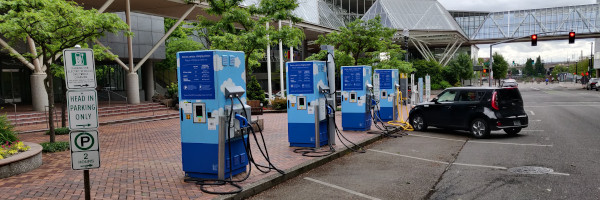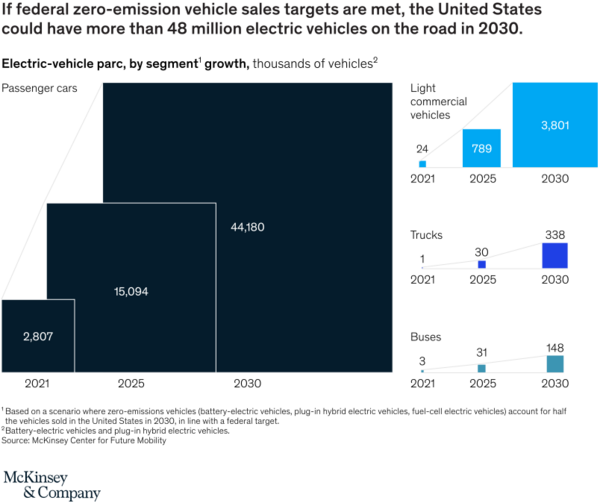Electric Vehicle Charging Infrastructure
| Transportation | |||||||||||||||||||||||||||||||||||||||||||||||||||||||||||||||||||||||||||||||||||||||||||||||||||||||||||||||||||||||||
|---|---|---|---|---|---|---|---|---|---|---|---|---|---|---|---|---|---|---|---|---|---|---|---|---|---|---|---|---|---|---|---|---|---|---|---|---|---|---|---|---|---|---|---|---|---|---|---|---|---|---|---|---|---|---|---|---|---|---|---|---|---|---|---|---|---|---|---|---|---|---|---|---|---|---|---|---|---|---|---|---|---|---|---|---|---|---|---|---|---|---|---|---|---|---|---|---|---|---|---|---|---|---|---|---|---|---|---|---|---|---|---|---|---|---|---|---|---|---|---|---|---|

| |||||||||||||||||||||||||||||||||||||||||||||||||||||||||||||||||||||||||||||||||||||||||||||||||||||||||||||||||||||||||
| Sectors | Transportation | ||||||||||||||||||||||||||||||||||||||||||||||||||||||||||||||||||||||||||||||||||||||||||||||||||||||||||||||||||||||||
| Contact | Wilfred Pinfold | ||||||||||||||||||||||||||||||||||||||||||||||||||||||||||||||||||||||||||||||||||||||||||||||||||||||||||||||||||||||||
| Topics |
| ||||||||||||||||||||||||||||||||||||||||||||||||||||||||||||||||||||||||||||||||||||||||||||||||||||||||||||||||||||||||
Activities
Press
| |||||||||||||||||||||||||||||||||||||||||||||||||||||||||||||||||||||||||||||||||||||||||||||||||||||||||||||||||||||||||
- Authors
The electric vehicle (EV) charging infrastructure is still in the early stages of development, but it is growing rapidly as more and more people adopt EVs.
There are currently two main types of EV charging infrastructure: Level 1 charging, which is typically provided by a standard 120-volt household outlet and can take up to 20 hours to charge a vehicle; and Level 2 charging, which is typically provided by a 240-volt outlet and can take up to 8 hours to charge a vehicle. In addition, there are also Level 3 charging stations, also known as fast charging stations, which can charge an EV in as little as 20-30 minutes. Fast charging stations are typically located along highways and in urban areas to provide convenient charging options for long-distance travel and daily commuting.
The availability of EV charging infrastructure varies significantly by region. In some areas, there are numerous charging stations available, while in other areas there may be few or none. In general, the availability of EV charging infrastructure is more limited in rural areas compared to urban areas, due in part to the higher cost of installing and maintaining charging stations in these areas.
There are also several initiatives underway to improve the EV charging infrastructure, including the development of networks of charging stations and the use of renewable energy sources to power charging stations. As more people adopt EVs and the demand for charging infrastructure grows, it is likely that the EV charging infrastructure will continue to expand and improve.
Based on projections capping global warming at 2 C, the researchers at the MIT Joint Program on the Science and Policy of Global Change found that the global electric vehicle (EV) fleet will likely grow to about 95-105 million EVs by 2030, and 585-823 million EVs by 2050. Capping global warming at 1.5 C, global EV stock reaches more than 200 million vehicles in 2030, and more than 1 billion in 2050, accounting for two-thirds of the global private light-duty vehicle (LDV) fleet. The research team also determined that EV uptake will likely grow but vary across regions over the 30-year study time frame, with China, the United States, and Europe remaining the largest markets. Finally, the researchers found that while EVs play a role in reducing oil use, a more substantial reduction in oil consumption comes from economy-wide carbon pricing.
In the United States the Bipartisan Infrastructure Law (BIL) provides $7.5 billion to develop the country’s EV-charging infrastructure. The goal is to install 500,000 publicly accessible charging stations compatible with all vehicles and technologies by 2030. However, even the addition of half a million public chargers could be far from enough. In a scenario in which half of all vehicles sold are zero-emission vehicles (ZEVs) by 2030 in line with US targets to meet the 2C target McKinsey and Company estimate that America would require 1.2 million public EV chargers and 28 million private EV chargers by that year.
In Europe The EU’s “Fit for 55 Package” published in July 2021 revealed its plans to reduce emissions by at least 55% by 2030 (compared to 1990 levels), and to be the world’s first climate-neutral continent by 2050. The current truck regulation requires a 30% emissions reduction by 2030 and will be reviewed in 2022. Together, these targets need a significant share of new passenger car (PC) and commercial vehicle (CV) sales to be electric vehicles (EVs) by 2030. The uptake of EVs requires the build-up of an electric vehicle charging infrastructure in Europe.
- Recomendation
It is recommended that cities move quickly to take advantage of these incentives knowing that the demand for infrastructure is there and getting national help will greatly reduce the burden while delivering needed services to their citizens.
- Activity

|
Portland Electric Avenue | |
| Electric Avenue officially opened at the World Trade Center Portland in 2016 and is located on the Northside of Southwest Salmon Street in downtown Portland. It offers street access charging stations to allow visitors to charge their personal electric vehicles while visiting the World Trade Center and neighboring offices. | ||

|
Accelerating Public Charging Infrastructure For Commercial Vehicles | |
| Daimler Truck North America LLC (DTNA), NextEra Energy Resources, LLC and BlackRock Renewable Power (BlackRock) today announced that they have signed a Memorandum of Understanding (MOU) to lay the foundation for a proposed joint venture (JV) to design, develop, install and operate a nationwide, high-performance charging network for medium- and heav-duty battery electric and hydrogen fuel cell vehicles in the U.S. With the goal of accelerating the rollout of carbon-neutral freight transportation, start of operations for the future JV is planned for 2022. Initial funding is expected to be comprised of approximately $650 million divided equally among the three parties. | ||

|
BMW and Electrify America Announces Two Years Complimentary Charging | |
| BMW of North America and Electrify America today announced an agreement to provide 2022 BMW EV customers with two years of 30-minute complimentary charging sessions at all Electrify America public charging stations, from the date of vehicle purchase. The program will launch with the sale of the new all-electric BMW iX xDrive50, BMW i4 eDrive40 and BMW i4 M50 in March. | ||

|
Best Practices Document for EV Charging | |
| EVgo today released a new guide featuring best practices gleaned from over a decade of operating experience designed to help state Departments of Transportation (DOTs) and their partners with administering funds from the recently announced $5 billion National Electric Vehicle Infrastructure Program (NEVI). | ||

|
Charging Forward | |
| The rapid growth in electric vehicles (EVs) today is part of a fundamental shift in transportation, a change that promises substantial benefits to individuals, businesses, communities, and the entire Nation. All Americans, regardless of where they live, should have the opportunity to benefit from the lower operating costs, reduced maintenance needs, and improved performance that EVs provide. | ||

|
Charging Infrastructure For Commercial Vehicles | |
| Daimler Truck North America LLC (DTNA), NextEra Energy Resources, LLC and BlackRock Renewable Power (BlackRock) today announced that they have signed a Memorandum of Understanding (MOU) to lay the foundation for a proposed joint venture (JV) to design, develop, install and operate a nationwide, high-performance charging network for medium- and heavy-duty battery electric and hydrogen fuel cell vehicles in the U.S. With the goal of accelerating the rollout of carbon-neutral freight transportation, start of operations for the future JV is planned for 2022. Initial funding is expected to be comprised of approximately $650 million divided equally among the three parties. | ||

|
Curbside Level 2 EV Charging | |
| Seattle City Light is launching a service that will install public Level 2 electric vehicle (EV) chargers at curbside locations throughout the city of Seattle. City Light is offering this service to provide near-home EV charging for residents who cannot access off-street parking to charge their vehicles. | ||

|
Electrify America Complimentary Charging Genesis EV | |
| Electrify America today announced an agreement with Genesis Motor America to offer three years of 30-minute complimentary charging sessions from the date of vehicle purchase for the fully electric GV60 to be released by Genesis. | ||

|
First Public Wireless Charging Road in the United States | |
| he Company is pleased to announce that the State of Michigan Department of Transportation in the United States in conjunction with the State Department of Future Transportation and Electrification has notified the Company that it has won a tender to establish a wireless charging demonstration project that will include a 1.6 kilometer (1 mile) wireless charging road and static charging stations (the "Michigan Project"). | ||

|
First in the United States Wireless Electric Vehicle Charging Road | |
| Michigan’s Department of Transportation has selected Electreon, the Israeli provider of wireless charging for electric vehicles on the go, to build a wireless in-road charging pilot in Detroit. The mile long test section will be the first wireless charging infrastructure on a public road in the US. | ||

|
First-of-its-kind Heavy-Duty Electric Truck Charging Site | |
| Daimler Trucks North America (DTNA) and Portland General Electric (PGE) opened to the public today the first-of-its-kind heavy-duty electric truck charging site, called “Electric Island.” Electric Island will help accelerate the development, testing and deployment of zero emissions (tank to wheel) commercial vehicles, like the ones manufactured by DTNA. | ||

|
Kia and Electrify America to provide 1,000KWh of charging | |
| Kia America and Electrify America have announced a partnership to provide Kia EV6 buyers with 1,000 kilowatt-hours (kWh) of complimentary EV charging/energy at any Electrify America station across the U.S. The agreement between the two companies will enable Kia owners 3,500 to 4,000 miles of all-electric driving at no charging cost, depending on the vehicle model and various conditions. | ||

|
Portland new charging contract with State Grant | |
| Portland-based OpConnect was selected to install and manage electric vehicle charging stations that will serve up to 360 City vehicles over the next five years. And a $2.6 million state grant will replace eight diesel trucks used by the Portland Bureau of Transportation (PBOT) with electric vehicles and install specialized charging stations to serve them. | ||

|
Shell’s global EV charging ambitions | |
| ABB E-mobility has signed a new global framework agreement with Shell to supply ABB’s end-to-end portfolio of AC and DC charging stations. The portfolio ranges from the AC wallbox for home, work or retail installations to the Terra 360 which is ideal for refueling stations, urban charging stations, retail parking and fleet applications. | ||

|
Traton Group, Daimler Truck and Volvo Group European charging infrastructure | |
| TRATON GROUP, Daimler Truck, and the Volvo Group completed the final step in forming the previously announced joint venture for charging infrastructure in Europe. The new joint venture, with Anja van Niersen as appointed CEO, is expected to have a significant role in supporting the European Union’s Green Deal for carbon-neutral freight transportation by 2050. | ||















